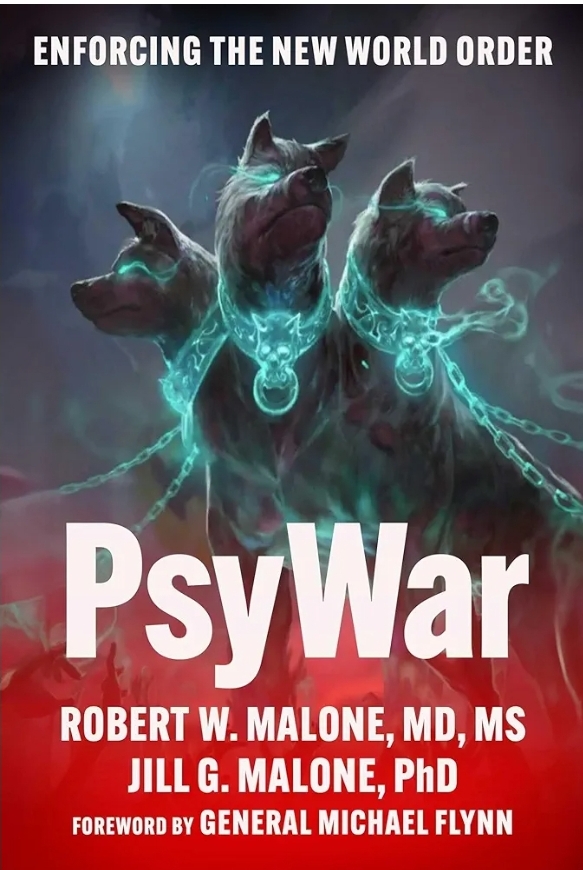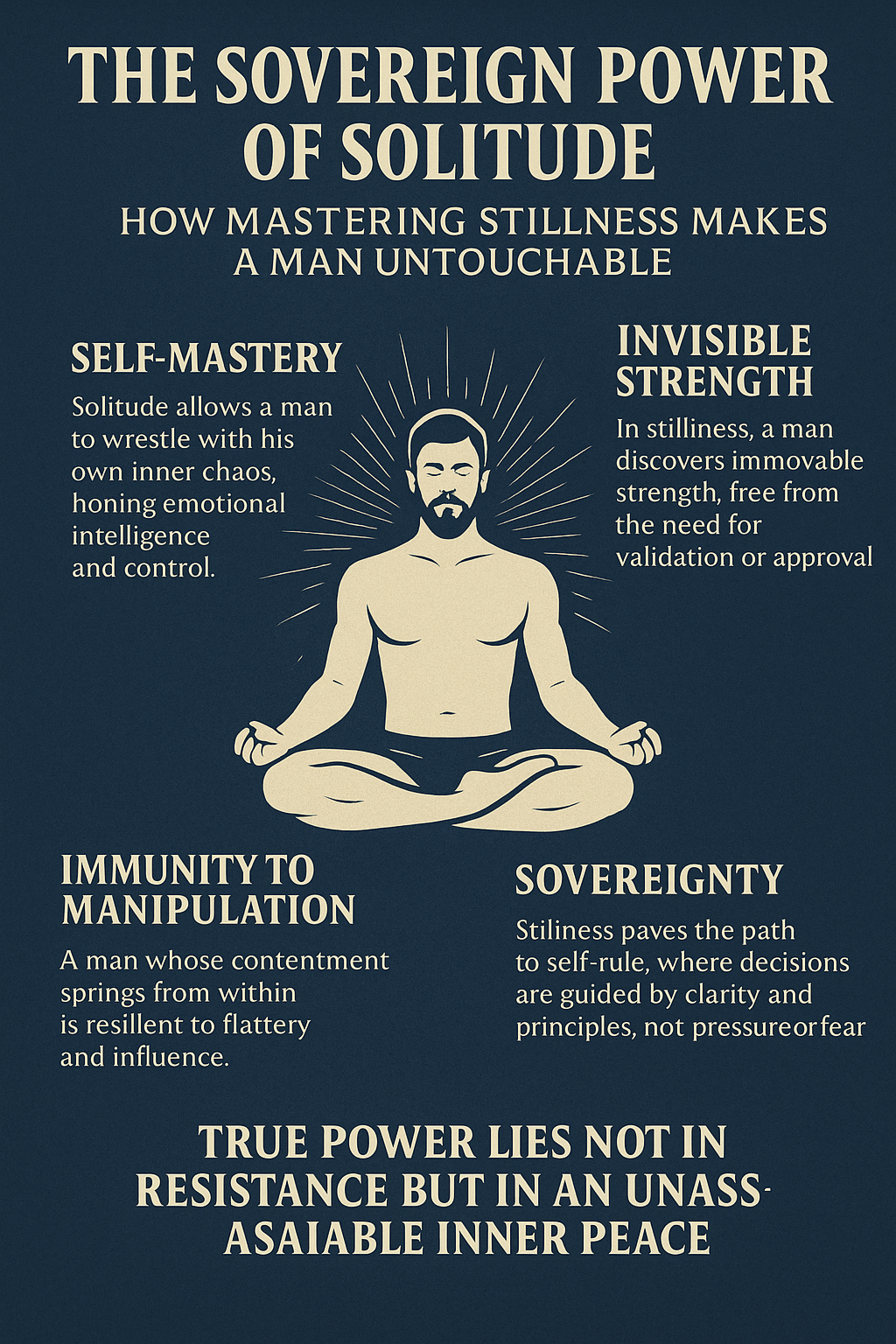Robert W. Malone’s PsyWar: Enforcing the New World Order explores psychological warfare and its role in shaping societal control, particularly within the context of global power dynamics. Although Malone is primarily known for his contributions to mRNA technology and his commentary on public health and policy, PsyWar focuses on the broader implications of how psychological manipulation can be used to maintain control over populations and enforce ideologies aligned with a globalist agenda.
Key Themes and Concepts:
- Psychological Warfare (PsyWar):
- Malone delves into the tactics of psychological operations (psyops), where governments, corporations, and global elites use fear, propaganda, and information manipulation to influence public opinion and behavior.
- PsyWar is not only used during military conflict but also as a tool in everyday governance, media, and public health policy, creating compliance through fear, confusion, and a manipulated sense of reality.
- The New World Order:
- Malone ties the concept of the New World Order (NWO) to globalist efforts to centralize power and authority, often at the expense of national sovereignty and individual freedoms.
- He suggests that psychological operations are instrumental in enforcing the NWO by creating a narrative that justifies increased surveillance, loss of personal freedoms, and global governance.
- Media Manipulation and Information Control:
- One of the core ideas in PsyWar is that mainstream media and social media platforms are heavily involved in psychological warfare, disseminating carefully curated information that serves the interests of the powerful, rather than the public.
- Malone argues that disinformation and selective censorship, particularly during events like the COVID-19 pandemic, are key tools for influencing public perception and stifling dissenting voices.
- Fear as a Tool for Compliance:
- Malone highlights how fear, particularly during crises, is used as a psychological weapon to induce compliance. Whether it’s the fear of a pandemic, economic collapse, or war, Malone suggests that the elites create an environment where the public willingly surrenders freedoms for a perceived sense of security.
- The concept of “manufactured crises” is explored, where global events are seen as deliberately exaggerated or exploited to further the agenda of centralizing power.
- Global Health and Medical Tyranny:
- Drawing on his expertise in medical research, Malone discusses how public health can be weaponized as part of psychological warfare. He critiques the use of medical emergencies, such as pandemics, as an opportunity for governments and global organizations to implement draconian measures.
- Malone views the global response to COVID-19 as an example of how fear and uncertainty are used to enforce social control, lockdowns, and experimental medical mandates, which he views as part of a larger strategy to condition societies to accept global governance.
- Loss of Individual Liberty:
- The book emphasizes how psyops lead to the erosion of individual rights and freedoms. The ultimate goal of the New World Order, according to Malone, is a society where individual autonomy is sacrificed for collective control, often under the guise of safety or the greater good.
- Psychological manipulation creates a populace that is more willing to accept increased governmental authority, surveillance, and centralized decision-making.
- The Role of Big Tech and Social Media:
- Malone also addresses how Big Tech companies, in collaboration with governments and global organizations, play a significant role in psychological warfare by controlling the flow of information and curating online experiences to manipulate public opinion.
- Algorithms, censorship, and the promotion of certain narratives are seen as tools used to guide societal behavior, suppress dissent, and enforce ideological conformity.
- Resistance and Awakening:
- Despite the grim portrayal of psychological warfare, Malone also discusses the importance of awakening to these tactics. He advocates for critical thinking, independent research, and the rejection of fear-based narratives as ways to resist psychological manipulation.
- PsyWar calls for a renewed focus on individual rights, transparency, and accountability to push back against the forces that seek to undermine democratic freedoms.
In PsyWar: Enforcing the New World Order, Robert W. Malone explores the intricate mechanisms of psychological manipulation and control, particularly within the context of a globalist agenda. The book argues that psychological operations are a critical tool for enforcing compliance, diminishing individual freedoms, and centralizing power under the New World Order. Through his analysis, Malone calls for a greater awareness of these tactics and an active resistance against the growing influence of global elites, media manipulation, and government overreach.
Robert Malone’s PsyWar delves into the idea that universities and pharmaceutical companies, particularly through their close ties to government and corporate interests, have become key instruments in teaching and enforcing obedience to the broader system. In Malone’s perspective, these institutions play a central role in promoting compliance with the status quo, often at the expense of critical thinking and individual autonomy. Here are the key points regarding how universities and the pharmaceutical industry contribute to this process, as discussed in PsyWar:
Universities: Factories of Obedience
- Education as Indoctrination:
- Malone argues that modern universities have shifted from being centers of free thought and intellectual diversity to institutions that enforce ideological conformity. Instead of fostering critical thinking, they increasingly promote a singular narrative aligned with government or corporate interests.
- Many academic programs, particularly in fields like public health, social sciences, and political science, are seen as reinforcing a worldview that prioritizes state control, globalism, and centralized power. This conditioning prepares students to accept and work within the existing structures of power rather than challenge them.
- Funding and Influence:
- According to Malone, universities are often heavily influenced by government and corporate funding, particularly from the pharmaceutical industry, tech companies, and defense contractors. This financial dependency limits academic freedom and incentivizes universities to align their research and teachings with the priorities of these benefactors.
- Research agendas are often driven by the need for funding, leading to a focus on topics that benefit large corporations or align with government policies, rather than serving the public good. For example, pharmaceutical companies may fund medical research that emphasizes drug-based treatments over natural or alternative approaches.
- Compliance through Credentialing:
- Universities are also viewed as gatekeepers for professional advancement. Through their control of degrees and credentials, they ensure that only those who conform to the system’s norms can enter influential positions in society.
- In fields like medicine, law, and public health, this means that individuals must demonstrate adherence to certain principles—such as support for pharmaceutical interventions or government health mandates—to progress in their careers.
- Suppression of Dissent:
- Malone argues that academic environments increasingly suppress dissenting views, especially those that challenge the dominant narratives around issues like climate change, globalism, and the pharmaceutical industry. Faculty and students who deviate from these perspectives may face professional or social repercussions, including denial of tenure, funding cuts, or public ostracization.
- Universities have become less tolerant of intellectual diversity, promoting a uniformity of thought that aligns with the broader goals of government and corporate interests.
Pharmaceutical Industry: Enforcing Obedience through Medicine
- Public Health as a Tool for Control:
- Malone critiques the pharmaceutical industry’s outsized influence on public health policy, which he argues is often more about maintaining control than improving health outcomes. The industry’s close ties with regulatory bodies, such as the FDA and WHO, allow it to shape health policies that promote widespread pharmaceutical use, often at the expense of individual choice and autonomy.
- During health crises, such as the COVID-19 pandemic, Malone claims that pharmaceutical companies used fear-based messaging to enforce compliance with vaccination mandates and other government health measures. This, he suggests, is a form of psychological warfare designed to coerce the public into accepting control over their health decisions.
- Profits over People:
- Malone asserts that the primary motivation of the pharmaceutical industry is profit, not public health. Drug companies fund research, sponsor clinical trials, and exert influence over medical education to ensure that their products remain the preferred—and sometimes only—solution to health problems.
- This leads to an overemphasis on drug-based treatments, while non-pharmaceutical interventions, such as lifestyle changes or alternative therapies, are marginalized or dismissed as unscientific. The result is a population that is increasingly dependent on pharmaceutical solutions, reinforcing corporate power.
- Medical Education as Compliance Training:
- Medical schools, many of which are funded or influenced by the pharmaceutical industry, train future doctors to view pharmaceuticals as the first line of defense against illness. This creates a system where healthcare professionals are more likely to prescribe drugs than explore holistic or alternative approaches.
- Malone argues that this indoctrination begins early in medical education, where students are taught to trust pharmaceutical research and view regulatory bodies like the FDA as the ultimate authority on what constitutes safe and effective medicine. This fosters a culture of compliance, where doctors are discouraged from questioning the safety or efficacy of pharmaceutical products.
- Censorship and Propaganda:
- Similar to the academic world, the pharmaceutical industry is accused of suppressing dissenting voices within the medical community. Doctors or researchers who challenge the safety of widely prescribed drugs or raise concerns about conflicts of interest within regulatory agencies are often silenced or discredited.
- Malone highlights how pharmaceutical companies use their influence over the media and academic journals to control the narrative around public health, ensuring that critical perspectives are rarely heard by the public.
The Intersection of Academia and the Pharmaceutical Industry
- Mutual Reinforcement:
- Universities and the pharmaceutical industry often work together to enforce obedience to the system. Universities train the next generation of doctors, scientists, and public health officials, while the pharmaceutical industry funds much of the research that shapes medical education and public health policy.
- This relationship creates a feedback loop, where universities produce professionals who are conditioned to trust and promote pharmaceutical interventions, while the industry continues to fund academic research that supports its products and agenda.
- The Role of Public Health Crises:
- Malone points to events like the COVID-19 pandemic as examples of how this relationship can be weaponized during public health crises. Governments, with the backing of pharmaceutical companies, enforced lockdowns, mask mandates, and vaccine requirements, using fear and psychological manipulation to ensure compliance.
- Universities played a key role in legitimizing these measures, often through the production of research that supported government mandates or by silencing dissenting voices within the academic community.
In PsyWar, Robert W. Malone argues that universities and the pharmaceutical industry are key players in teaching and enforcing obedience to a broader system of control. Through their influence on education, research, and public health policy, these institutions condition individuals to accept the status quo, stifle dissent, and prioritize corporate or governmental interests over individual autonomy. The result is a society where critical thinking and personal freedom are increasingly marginalized, replaced by a culture of compliance and dependency.
Robert W. Malone’s PsyWar: Enforcing the New World Order delves into the intricate mechanisms of psychological warfare (PsyWar) and its role in shaping global power structures. Within this framework, Malone extensively examines the concepts of global corporatism and fascism, exploring how these ideologies are interwoven with psychological operations to enforce a centralized, authoritarian global order. Below is a detailed analysis of how Malone addresses these themes in his work:
1. Understanding Key Concepts
Global Corporatism:
Global corporatism refers to a political and economic system where corporations wield significant influence over government policies and global governance structures. In this system, multinational corporations collaborate with state institutions to shape regulations, economic policies, and societal norms to benefit their interests, often at the expense of individual freedoms and democratic processes.
Fascism:
Fascism is an ideology characterized by dictatorial power, forcible suppression of opposition, strong regimentation of society and the economy, and often a policy of belligerent nationalism. Modern interpretations of fascism also consider the fusion of corporate power with state control, leading to a corporatist authoritarian regime.
2. PsyWar as a Tool for Enforcing Global Corporatism and Fascism
Psychological Operations (PsyOps):
Malone argues that PsyWar techniques are employed to manipulate public perception, control information flow, and influence societal behaviors to support the consolidation of global corporatist. These operations leverage media, technology, and propaganda to shape narratives that favor centralized authority and corporate interests.
Information Control and Propaganda:
One of the primary methods discussed is the use of controlled media outlets and digital platforms to disseminate propaganda that normalizes corporatist and fascist ideals. By controlling the narrative, these regimes can suppress dissenting voices, marginalize opposition, and create a facade of legitimacy and public support.
Surveillance and Social Control:
Malone highlights how advanced surveillance technologies are integrated into PsyWar strategies to monitor and control populations. This surveillance infrastructure not only tracks individual behaviors but also identifies and neutralizes potential threats to the established order, reinforcing a sense of omnipresent authority.
3. The Role of Corporations in PsyWar and Global Governance
Corporate-State Symbiosis:
Malone details the symbiotic relationship between multinational corporations and state institutions, where both entities benefit from mutual support. Corporations gain access to government contracts, favorable regulations, and protectionist policies, while governments leverage corporate resources and innovation to maintain economic stability and control.
Economic Leverage:
By controlling critical industries and economic sectors, corporations exert significant influence over global policies. Malone explains how economic leverage is used as a tool for PsyWar, ensuring that corporate interests align with and reinforce authoritarian governance structures.
4. Fascist Characteristics in Global Corporatism
Authoritarian Control:
Malone draws parallels between fascist regimes and global corporatism, emphasizing the authoritarian control exerted by both systems. In global corporatism, the concentration of power within a few corporations mirrors the centralized power seen in fascist states, where a single party or leader holds unchallenged authority.
Suppression of Dissent:
Both fascist regimes and global corporatist systems prioritize the suppression of dissent to maintain control. Malone discusses how PsyWar techniques are employed to delegitimize opposition, spread misinformation, and create a climate of fear and conformity.
Nationalism and Globalism:
While traditional fascism is rooted in extreme nationalism, Malone explores how global corporatism blends nationalist sentiments with globalist agendas. This hybrid approach allows for the maintenance of national identities while simultaneously promoting a transnational economic and political order that serves corporate interests.
5. Mechanisms of Enforcing the New World Order
Regulatory Frameworks:
Malone examines how regulatory frameworks are crafted to favor corporate interests, often under the guise of public good. These regulations serve to entrench corporate power, limit competition, and prevent the rise of alternative economic models that could challenge the established order.
Education and Indoctrination:
Educational institutions and media are utilized as tools for indoctrination, shaping societal values and norms to align with corporatist and fascist ideologies. By controlling education and information dissemination, these systems ensure that future generations uphold and perpetuate the existing power structures.
Technological Manipulation:
Advanced technologies, including artificial intelligence and data analytics, are employed to predict and influence public behavior. Malone discusses how these technologies enable precise targeting of messages and interventions, enhancing the effectiveness of PsyWar campaigns.
6. Implications for Individual Liberty and Democracy
Erosion of Personal Freedoms:
Malone argues that the fusion of global corporatism and fascism, reinforced through PsyWar, leads to the erosion of personal freedoms and democratic institutions. As power becomes concentrated, individual autonomy is diminished, and citizens become passive recipients of controlled narratives and policies.
Democratic Backsliding:
The book highlights the risk of democratic backsliding, where democratic institutions and processes are undermined by authoritarian practices masked as corporate efficiency and global stability. This gradual erosion makes it difficult to recognize and resist the consolidation of power.
7. Resistance and Countermeasures
Awareness and Education:
Malone emphasizes the importance of raising awareness about the tactics of PsyWar and the dangers of global corporatism and fascism. Educating the public on recognizing and challenging manipulative narratives is crucial for preserving individual freedoms and democratic integrity.
Decentralization and Transparency:
Promoting decentralized governance and increasing transparency in corporate and governmental operations are proposed as essential countermeasures. By dispersing power and making operations open to public scrutiny, the influence of entrenched power structures can be mitigated.
Grassroots Movements:
Supporting grassroots movements and community-based initiatives that prioritize local autonomy and resist centralized control is another strategy discussed. These movements can serve as counterweights to the pervasive influence of global corporatist and fascist systems.
In PsyWar: Enforcing the New World Order, Robert W. Malone presents a compelling analysis of how psychological warfare is intricately linked with the rise of global corporatism and fascism. By examining the symbiotic relationship between corporations and state institutions, the book underscores the dangers of centralized power and the erosion of individual liberties. Malone’s work serves as a cautionary tale, urging vigilance and proactive measures to resist the manipulative tactics employed to enforce an authoritarian global order. Through awareness, education, and grassroots resistance, Malone advocates for the preservation of democratic values and personal freedoms against the encroaching influence of PsyWar-driven corporatist and fascist agendas.
In Robert W. Malone’s PsyWar delves deeply into cognitive warfare, a crucial aspect of psychological warfare that targets the mind to control thoughts, behaviors, and perceptions. Cognitive warfare works by manipulating both the conscious and subconscious mind to achieve desired outcomes, often without the individual realizing they are being influenced. Here’s a detailed look at how Malone explores this concept:
1. Cognitive Warfare Defined
Cognitive warfare is an advanced form of psychological warfare designed to alter the thought processes, emotions, and decision-making of individuals or entire populations. Unlike traditional forms of psychological manipulation, cognitive warfare specifically targets how people think rather than just what they think, aiming to shape and control their cognitive framework.
2. Subconscious vs. Conscious Targeting
Subconscious Psychological Warfare
- Malone emphasizes that much of cognitive warfare operates at the subconscious level, where individuals are unaware they are being influenced. The subconscious mind processes information automatically and can be influenced through subtle cues, such as imagery, language patterns, or repetition.
- The subconscious is vulnerable to messages that bypass rational, conscious thought and appeal directly to emotions, fears, and deep-seated beliefs. Malone discusses how media, advertising, and social platforms use subconscious messaging to steer public opinion and behaviors without overt coercion.
- This subconscious targeting often takes the form of neurolinguistic programming (NLP), subliminal messaging, and carefully crafted propaganda that evoke emotional responses, particularly fear or anger, to manipulate the audience’s actions.
Conscious Mind Warfare
- Conscious warfare is more overt, seeking to manipulate what individuals are consciously aware of, such as through news, education, or direct propaganda. While the individual may recognize certain influences, the extent to which their choices and beliefs are being manipulated is often obscured.
- Malone explains that cognitive warfare on the conscious level uses disinformation and misdirection to create confusion, encouraging individuals to form flawed conclusions based on incomplete or false data. The conscious mind is overwhelmed with conflicting information, leading to decision paralysis or manipulation through false dichotomies.
3. Techniques of Cognitive Warfare
1. Subliminal Programming:
Subliminal programming involves embedding hidden messages within audio or visual content that the subconscious mind picks up on without the conscious mind being aware. Malone points out how these techniques can subtly alter behavior or attitudes over time, encouraging compliance with political or social agendas.
2. Misinformation and Disinformation:
By spreading false or misleading information, cognitive warfare can misdirect public attention and shape opinions without individuals realizing they are being manipulated. Malone highlights how state and corporate actors use misinformation to sow doubt or create false consensus in public discourse.
3. Repetition and Emotional Triggers:
Malone discusses how repeated exposure to certain narratives—especially those framed with emotional language—conditions the brain to accept these narratives as truth. Emotions like fear, anger, or hope are strong motivators and are regularly leveraged to influence decision-making processes, bypassing critical thinking.
4. Manipulation of Perception:
Cognitive warfare manipulates how individuals perceive reality, making it difficult to distinguish between truth and falsehood. This can lead to cognitive dissonance, where individuals feel internal discomfort and thus seek out information that reinforces their pre-existing beliefs, further deepening the control over their cognition.
4. The Impact on Decision Making
Malone emphasizes that cognitive warfare leads to manipulated decision-making by overwhelming individuals with information or guiding their emotional responses. This type of manipulation can make people act against their own interests or values, often believing they are making independent choices.
Learned Helplessness:
Malone points out that one result of sustained cognitive warfare is the induction of a state of learned helplessness, where individuals feel that they have no control over their circumstances. In this state, people become passive and are more likely to submit to authority or follow established narratives, rather than seeking alternative viewpoints.
Groupthink:
Cognitive warfare encourages groupthink, where individuals conform to the dominant opinion to avoid conflict or ostracism. By controlling the narrative and framing certain opinions as unacceptable or dangerous, cognitive warfare limits the scope of acceptable discourse, pushing individuals to conform to manipulated societal norms.
5. Psychological Resilience and Awareness
Developing Awareness:
Malone argues that the first step to resisting cognitive warfare is through awareness of how these tactics work. Understanding the methods and recognizing when cognitive warfare is being employed enables individuals to build resilience against manipulation.
- Critical thinking is key, as is questioning the sources of information and recognizing emotionally charged narratives that aim to bypass rational thought.
Strengthening Mental Defenses:
Malone advocates for strengthening mental defenses by fostering independent thinking, emotional regulation, and information literacy. These skills enable individuals to critically assess information, identify manipulative tactics, and make informed decisions based on logic rather than emotion or manipulation.
6. Real-World Applications of Cognitive Warfare
Malone examines how cognitive warfare has been used in various domains, including:
- Politics: Shaping public opinion during elections, manipulating public responses to policies, or controlling dissent.
- Marketing and Media: Influencing consumer behavior, altering brand perceptions, and creating demand through emotional manipulation.
- Military and National Security: Used by intelligence agencies and military forces to control enemy populations, win support, or destabilize governments.
7. Conclusion: Implications of Cognitive Warfare
Robert W. Malone’s PsyWar highlights the dangers posed by cognitive warfare in the modern world, where individuals and societies are increasingly subjected to subconscious and conscious manipulation. By targeting both levels of the mind, cognitive warfare alters perception, decision-making, and ultimately, behavior. The consequences of unchecked cognitive warfare are far-reaching, affecting individual freedom, democracy, and societal cohesion.
Malone concludes that awareness and resilience are the only antidotes to these manipulations. He advocates for vigilance in understanding how cognitive warfare operates and for developing the mental fortitude to resist its influence. Only through education and critical awareness can individuals reclaim their autonomy in an increasingly manipulated world.
In Robert W. Malone’s discussions on PsyWar (psychological warfare), he highlights concerns about how modern technologies, especially social media platforms, are being leveraged for cognitive warfare and information control. While Malone himself does not claim that social media is officially part of the CIA, he points out that these platforms have significant connections to government interests, including intelligence agencies, through partnerships or data-sharing programs. These relationships can facilitate surveillance, manipulation, and control of public opinion.
Key Points from Malone’s PsyWar Concepts:
- Social Media as a Tool for Cognitive Warfare:
- Malone explains how social media plays a crucial role in shaping perceptions and influencing the thoughts and emotions of the masses. This is part of a broader psychological warfare strategy, where control of the narrative can shape public behavior and attitudes.
- Links to Intelligence Agencies:
- Malone refers to historical precedents of intelligence agencies like the CIA influencing media and public discourse through programs like Operation Mockingbird. He suggests that modern social media giants might be similarly intertwined with intelligence agencies to facilitate mass data collection and influence operations.
- Manipulation through Algorithms:
- Malone discusses how social media algorithms are designed to amplify certain content, controlling what users see and how they engage with information. This, according to him, can lead to psychological manipulation, particularly in shaping political opinions, behaviors, and even creating social division.
- Surveillance and Data Harvesting:
- Social media platforms collect vast amounts of personal data, which can be analyzed and used by private corporations, governments, and intelligence agencies. This data is valuable for profiling, tracking, and even predicting individual and group behaviors, aligning with surveillance and control strategies.
- Propaganda and Disinformation:
- Malone highlights how social media can be weaponized to spread disinformation and propaganda. In a broader sense, it fits into the concept of psychological operations (psyops), where carefully crafted messaging is disseminated to influence public opinion or destabilize societies.
While Malone does not outright claim that social media is an arm of the CIA, he raises concerns about how these platforms, in cooperation with governments and intelligence agencies, can be used for psychological operations and mass manipulation. In his view, the use of social media for cognitive warfare reflects the broader agenda of controlling populations through information dominance.







